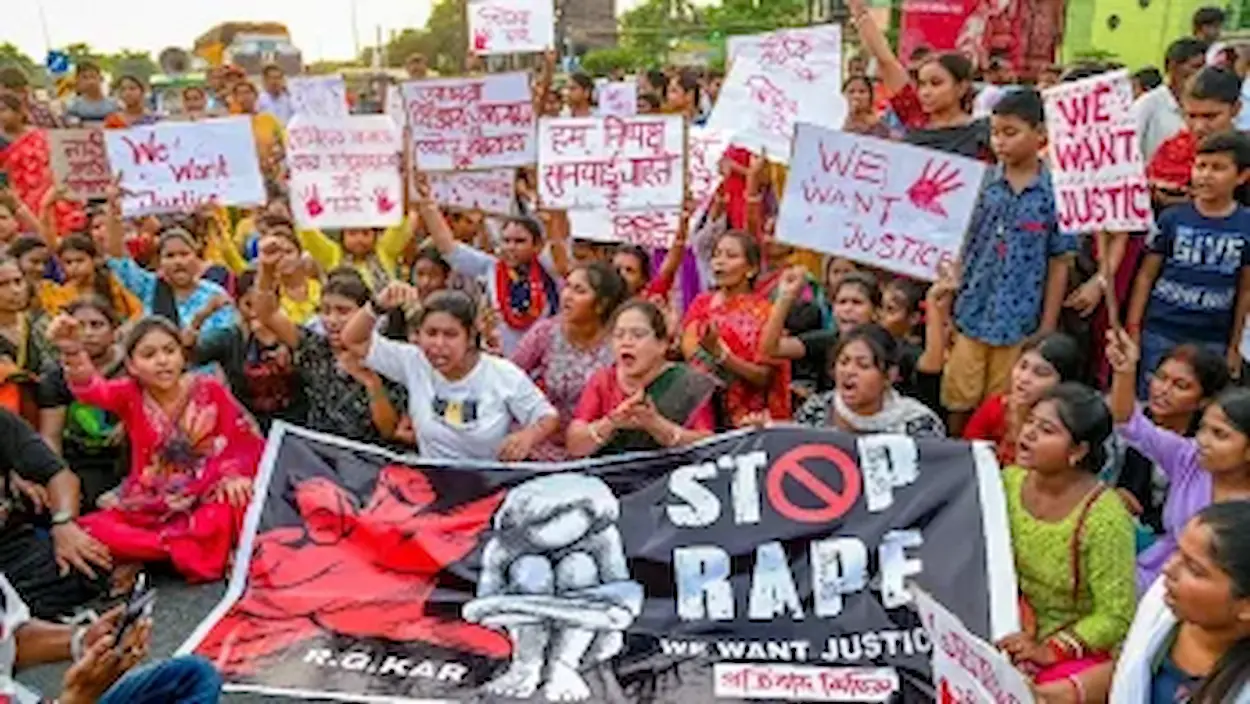
The Kolkata rape-murder case has exposed critical flaws in India’s criminal justice system
The Supreme Court of India has raised serious concerns over the handling of the Kolkata rape-murder case, questioning the West Bengal government’s approach and highlighting missing documents, forensic discrepancies, and delays in filing the FIR. In order to ensure a transparent and comprehensive probe into the case, the court has ordered the Central Bureau of probe (CBI) to produce a fresh report.
Background of the Kolkata Rape-Murder Case
The case centres on a postgraduate trainee doctor who was raped and murdered at RG Kar Medical College and Hospital in Kolkata.The incident, which took place in September 2024, sent shockwaves across the country, leading to widespread protests and demands for justice. The victim was found semi-nude with injury marks, raising suspicions of sexual assault before the murder.
Despite the severity of the crime, the West Bengal police faced criticism for their delayed response and alleged mishandling of forensic evidence. By taking suo motu cognisance of the case, the Supreme Court stepped in and demanded that the state government answer for its actions.
Supreme Court’s Observations
During the hearing, a bench led by Chief Justice DY Chandrachud questioned the West Bengal government on several lapses in the investigation. The court flagged the following key concerns:
- Missing Autopsy Documents – The challan required for post-mortem was reportedly missing, raising doubts about the authenticity of the forensic examination.
- Delayed FIR Registration – The unnatural death report was filed over 14 hours after the incident, which the court deemed unacceptable.
- Forensic Evidence Mishandling – The CBI revealed discrepancies in the forensic report, including improper storage of biological samples, which could compromise the integrity of the investigation.
- CCTV Footage Concerns – The court directed authorities to retrieve and analyze CCTV footage to determine the exact timeline of events.
The court was told by the Solicitor General of India, Tushar Mehta that the CBI will submit forensic samples to AIIMS Delhi for additional analysis.
CBI’s Role in the Investigation
Following the Supreme Court’s directive, the CBI has intensified its probe, focusing on:
- Reconstructing the crime scene using forensic experts.
- Identifying potential suspects based on witness statements and digital evidence.
- Ensuring forensic samples are properly analyzed to establish a clear timeline of events.
The agency has also sought clarifications from the West Bengal government regarding the missing documents and delayed FIR filing.
Public Outrage and Protests
The case has sparked nationwide protests, with medical professionals, activists, and students demanding swift justice. Doctors across West Bengal staged a strike, refusing to work until the government ensures better security measures for healthcare workers.
Political leaders have also weighed in, with opposition parties criticizing the state government for its alleged negligence in handling the case.
Legal and Political Implications
The Supreme Court’s intervention has set a precedent for accountability in criminal investigations. Legal experts believe this case may result in:
- Stricter forensic protocols to prevent evidence tampering.
- Faster FIR registration mandates to avoid delays in justice.
- Greater oversight on state police investigations in sensitive cases.
The Supreme Court is adamant about demanding accountability and openness, even though the West Bengal administration has promised the court that it will work closely with the CBI.
Conclusion
The Kolkata rape-murder case has exposed critical flaws in India’s criminal justice system, particularly in forensic handling and police investigations. With the Supreme Court closely monitoring the case, the nation awaits justice for the victim and hopes for systemic reforms to prevent such lapses in the future.
Read interesting news about the 23 years girl from Rajasthan who married 25 men in 7 months
Stay informed with the latest news and updates – only on Rapido Updates.